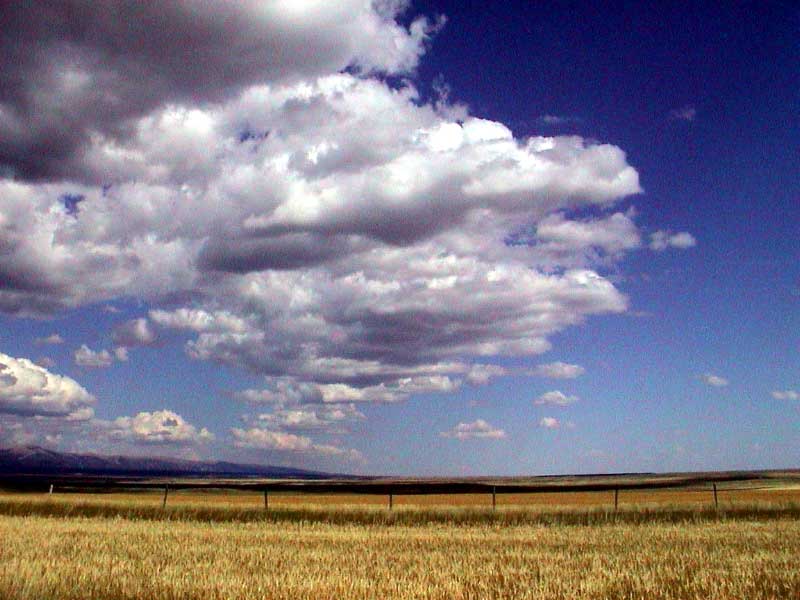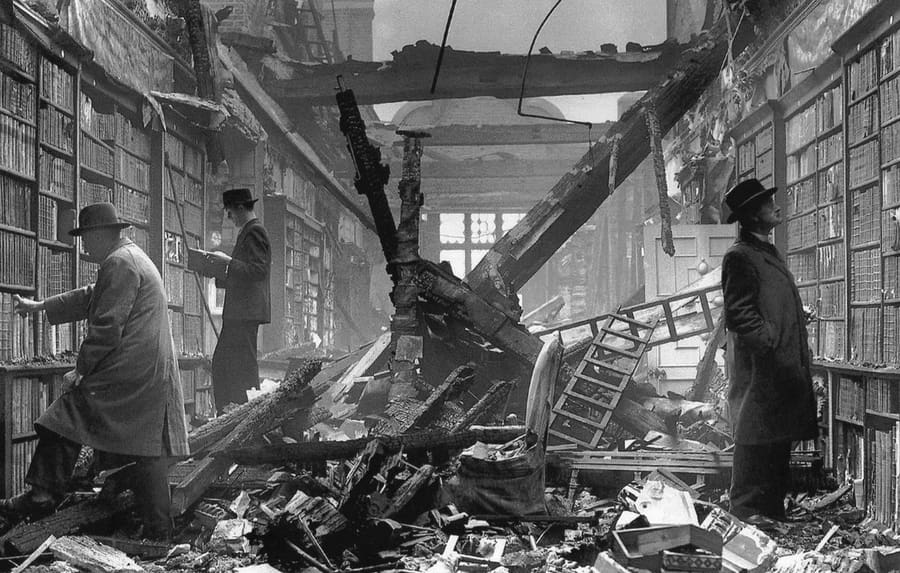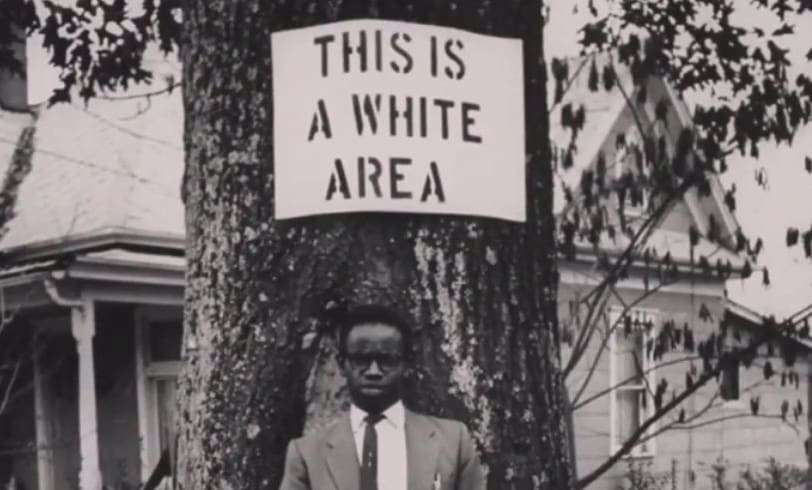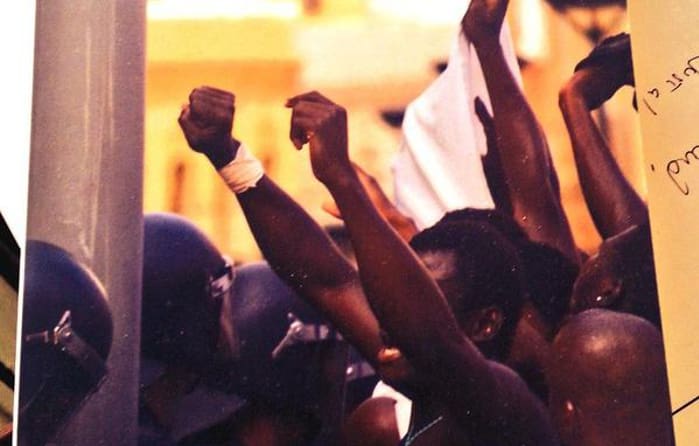AntiNote: The following is an extended excerpt of a radio interview, edited for readability.
On 5 April 2014 Chuck Mertz of This is Hell! Radio (Chicago) interviewed author and activist Maude Barlow about developments and challenges in the ongoing struggles around the accelerating but widely ignored water crisis.
Her observations about the ‘extreme energy’ frenzy in North America, mobilizations against it, and the need for a focus on water rights within this issue immediately caught our attention when the interview first aired; printing them has been on our back burner for a while. But the news out of Detroit this week heightened our sense of urgency.
Let the record reflect that Barlow’s remarks about Detroit’s coming water cutoffs came almost three months ago. We can only hope that the predictions she shared regarding the complete depletion of the Ogallala Aquifer within our lifetimes prove less accurate. Well, hope is one thing. We could also fight.
“These struggles are coming to communities near you, and the more fracking and extreme energy threaten our water sources, the more we need to band together.”
Chuck Mertz: On the line with us right now is Maude Barlow. She is author of Blue Future: Protecting Water for People and the Planet Forever and of 2007’s Blue Covenant: The Global Water Crisis and the Fight for the Right to Water, which was recently released in paperback. She is also chair of the board of Food and Water Watch. Good morning, Maude.
Maude Barlow: Good morning, Chuck, how nice to talk to you again.
CM: It’s always great to talk to you.
For twelve years you’ve been warning us against the corporate takeover of the world’s water, against the privatization of the world’s water, against all the crises and challenges that face the world’s water. Over the past twelve years, how successful has the movement been to stop the corporate takeover of water and the challenges that you saw back in 2001? How successful has your movement been?
MB: In some ways very successful. First of all, we built an incredible movement globally. In North America, Food and Water Watch and many other organizations have waged a wonderful fight against privatization. We have been successful in getting many privatized utilities—this is where big companies come in to run water systems on a for-profit basis—re-municipalized. In France alone, over forty municipalities, including Paris, tried privatization and have moved back to running their water publicly. These companies are not welcome in Latin America anymore, either.
So that is a huge success—though that struggle still continues, because the companies haven’t gone away, and municipalities are more cash-strapped than ever. Take a look at a place like Detroit. As you know, the city has declared bankruptcy, and they’re planning to sell everything including the water service. So that struggle is not finished. But we can claim some real success.
The big success that I have to tout is getting the United Nations to recognize the human right to water and sanitation, which was a twenty-year battle. I didn’t know that we were going to be able to pull it off. But we did: in the summer of 2010, the United Nations recognized water and sanitation as human rights.
CM: Why is that so important?
MB: It really matters when the General Assembly of the United Nations explicitly says nobody has the right to appropriate water while other people are dying. That’s basically the meaning of this thing. That it is a human right, and that it is the responsibility of governments to ensure clean, safe drinking water and sanitation for their people. In my opinion, when that happened, we took an evolutionary step forward as a human race, I really feel that.
A number of countries have amended their constitution; Mexico just amended its constitution to recognize the human right to water and sanitation. We’ve also had a couple of very important court cases. The Kalahari Bushmen of Botswana used the UN resolution successfully to challenge their government that was trying to kick them off the desert because they’d found diamonds there—and they want to frack. When the Kalahari Bushmen wouldn’t leave, the government smashed their wells and their water sources and they said anybody trying to bring water to the people there would go to jail. It was like a form of genocide, it was terrible.
And they kept losing the right to their water, until they went to the Supreme Court only months after we got the resolution at the UN, and based on that resolution the Supreme Court said, yes, they have the fundamental human right to water, and the government was forced to reopen their water bores.
So we have had some successes, but what we need is for people to be more cognizant. For instance, one of the things that a government is supposed to do is not just deliver clean, safe water—they’re also not allowed to take away a right. The people in Detroit should not be having their rights trampled the way they are. They are planning to start shutting down even more water services to inner city people in Detroit very soon.
A third obligation of government under a rights regime is not to allow a third party to come in and destroy water rights. So if you’re depending on local drinking water, and a fracking operation or a big pipeline carrying bitumen from the tarsands in Alberta comes through your community—as it did in Kalamazoo, Michigan—and it puts poisoned, chemical-laden bitumen in your water and you know you can’t ever really clean it up, that’s a violation of your human right to water.
We need to know this. People don’t know this. It has not been widely published that this right was recognized, or what that means. Because when we think of a human right to water, we think of poor people in Third World countries. Well, get that out of your mind. Think about poor people in inner city Detroit. It’s not just people far away. It’s people right here in North America. In Europe, with their austerity programs, they’re cutting off all sorts of people who can’t pay water bills that are being jacked up and privatized.
These struggles are coming to communities near you, and the more fracking and the more this extreme energy threatens our water sources, the more we need to band together and say we have a human right to water.
CM: In 2002 you knew that there was going to be this problem with the privatization of water. What you didn’t foresee were some of the new challenges that water would face over the coming years. And one of the biggest new challenges that water is facing today you just mentioned: fracking.
So even though you have had these successes, is it a matter of three steps forward and then two steps back? Because new challenges are always coming up in the abuse of water, like the way in which it is used in fracking.
MB: Yes, absolutely. Fracking is a very good example, but all forms of extreme energy are. I’ve just written a new report that tells the story of the threat to the Great Lakes, about how extreme energy is being moved by rail, and now they’re talking more about marine transport—barges and ships across the Great Lakes. In fact, the U.S. Coast Guard has just said that it’s going to allow the wastewater from fracking to be moved, if you can believe it, on open waterways in the United States, which is just insanity.
Another huge issue that we’re dealing with, in terms of what we didn’t see ten years ago, is “water markets.” That’s where governments actually convert a water license to a market; it’s no longer a license to access raw water, but rather you ‘own’ the water, the ‘water rights.’
We hadn’t anticipated that. Another is land- and water grabs. This is where either wealthy countries or big investment funds come in and buy up land and water. It’s a new kind of colonialism. There’s an area three times the size of Great Britain in Africa alone that has been bought up by private rights. They call it land grabs, but it’s just as much a water grab, and they’re using the water terribly. They pump the water mercilessly; they’re just repeating the mistakes we’ve made in the Global North with our form of agribusiness.
“The water crisis is a source of a lot of current conflict: the Israeli-Palestinian conflict, the conflict in Egypt, the conflict in Syria. You walk it back and you’ll find a water component at the heart of most of these conflicts. We need to understand that there’s nowhere on earth we can go to avoid dealing with this.”
And that’s not the last of them. Yet another threat is that under trade agreements like the new TTIP (between the United States and Europe) and the Trans-Pacific Partnership, corporations have the right not only to sue a country’s government if they bring in rules to protect water, but they can sue to say that they have rights to the water they’re using in your territory.
We actually have a case in Canada where that happened under NAFTA. A big American paper company left their operations in Newfoundland (nobody kicked them out),and then they turned around and, under NAFTA Chapter 11, said they were owed money for the water rights they left behind. They launched a challenge against the Canadian government, and our government didn’t even go to a NAFTA tribunal. It just turned around and gave them $130 million. So we now have a precedent in North America where governments actually have to pay a company if it is no longer using the so-called ‘water rights’ of the water it ‘owned.’
These are all insidious things that we couldn’t have imagined. Back then we were fighting bottled water, which we still are. We were fighting the privatization of services, which we still are. We were fighting the World Bank’s forcing privatization in the Third World, which we still are. But water commodification, water theft, is taking a whole new set of forms. We’re just trying to stay on top of it as much as we possibly can.
CM: How much of a challenge is it for the water movement, when water issues—as you were just pointing out—often seem to involve the developing world and the developing world’s populations, and not the developed world?
MB: You guys live in Chicago; you look out at a beautiful water source every day. I live in Ottawa, Canada; it’s pouring rain here and we still have snow. It’s really hard to think about a world running out of water if you live where we live. But let me just tell you that two years ago there was a very intensive global study—coordinated through the UN but with many, many research centers—that said our global takings of groundwater are doubling every twenty years, and that we are pumping this stuff up way faster than it can be replenished by nature.
They didn’t study the Great Lakes separately, but if the Great Lakes are being pumped as mercilessly as other water sources, the Great Lakes “could be bone dry in eighty years.” Which I think is an absolutely stunning statistic.
So we who live in areas of the world that have more water than others do not have any rightto sit down and think it’s not our problem. It is a global problem. It’s come first to places like China and India and Pakistan and around the Mediterranean; the Middle East is in trouble, Australia, Mexico City. There are many, many places in the world—the southwest of the United States being another—where permanent water crisis is already upon us.
Those of us who live in areas where that doesn’t feel true yet need to understand that there’s nowhere to go to get away from this issue when we start having mass migration of people moving from where the water’s gone to where water still exists. A lot of times we hear about refugees or mass migrations based on lack of food, but often there’s no food because there’s no water.
I have a section in the book where I talk about the water crisis being a source of a lot of current conflict: the Israeli-Palestinian conflict, the conflict in Egypt, the conflict in Syria. You walk it back and you’ll find a water component at the heart of most of these conflicts. We need to understand that there’s nowhere on earth we can go to avoid dealing with this.
CM: You mention in your book how if we approach the world through a lens of water policy issues, then—as you were just pointing out—we can solve conflicts. Why is focusing on water more important that focusing on climate change?
MB: I wouldn’t say so much that it’s more important—and in my organization we have a campaign on climate justice, and in fact on Monday I’m starting a seven-city tour against a Canadian pipeline called Energy East. The big companies are worried that you guys are going to stop Keystone, so now they’re planning other ways to get tarsands bitumen to port.
But a huge piece of the debate is missing when we talk about climate change only in terms of greenhouse gas emissions. It is a fault, in my opinion, with the climate movement. My gentle and loving criticism is that by only taking into account greenhouse gas emissions, we’re only talking about half the story.
When you remove water from water retentive landscapes, the soil dries up; the rain goes away; it affects the local hydrologic cycle. If you affect the local hydrologic cycle, you lose the capacity to temper the temperature and keep things cooler. When you cut down a rainforest, the rain goes away.
Everybody knows that one of the causes of the dustbowl was that they just took all that prairie grassland out so fast. The soil dried up, the soil blew away. Everybody knows that. But they also think that at the same time—by coincidence—there was this awful drought. Well, recent studies tell us it was not a coincidence. The drought was caused by the fact that the vegetation was gone and so the rain went away.
As we restore watersheds, the rain comes back, the vegetation comes back. We need to rebuild healthy forests and healthy wetlands. We need to protect our watersheds fiercely, knowing that they are the first bulwark against climate chaos.
That does not mean for one second we’re not fighting the other issues around the heavy oil and all of that, but I feel strongly that this piece of this discussion is missing. What we are doing to water, the abuse, mismanagement and, most importantly, displacement of water from where it’s needed for healthy hydrologic cycles to where we want it to be—think of California’s massive engineering of their water, and look at the crisis they’re in—contributes to the desertification of the world. And the desertification of the world contributes to climate chaos and warming.
“With massive circular bore well technology, we’re pulling water up so fast that the United States Department of Agriculture said last year that it’ll be gone in our lifetime. The Ogallala Aquifer will be gone. There aren’t any ifs ands or buts; it’s just a case of when and how fast it goes.”
CM: You mentioned your report over at canadians.org, Liquid Pipeline, and the threat to the Great Lakes. This week we had the spill over in Whiting, Indiana at the BP refinery; they were refining resources brought down from the tarsands. We had the petcoke situation here in Chicago, where there were hills of petcoke—also from tarsands—distributing dust into local neighborhoods.
Then there was an issue in Detroit near the Ambassador Bridge where a gentleman had allowed a whole bunch of petcoke—again, a waste product from tarsands—to be left on the shore without the permission of the city. We also had the spill in the last couple of weeks down in the Houston Channel, which is where the fuel coming from tarsands will be going; it’ll be coming in through Indiana, it’ll be coming down from the Keystone XL pipeline, possibly, and it’ll be going down into the Port Arthur/Houston Channel area.
What should we be learning? The tarsands are another issue, like fracking, that we were not considering when you were first on the show back in 2002.
MB: You know, they pulled out all the regulations for the Whiting refinery; basically gave them the go-ahead to dump toxins against the Clean Water Act because they ‘needed help’ in converting to refine tarsands bitumen from Canada. So that didn’t have to happen. That wasn’t just an accident; it’s really important for people to know that.
That’s why I call it extreme energy. The tarsands of northern Alberta are on the way to becoming the greatest source of greenhouse gas emissions in the world, if they continue to grow at the rate that the oil industry and the governments of Canada and Alberta want them to grow.
Up there, they have massive pools of poisonous, toxic water, the holding ponds for the byproducts of this operation. They’re filled with such horrible chemicals that when birds land on them they die instantly, so they have these gunshot sounds every couple of seconds to warn the birds and the ducks off.
We need to say no to tarsands energy coming into our communities. There’s a huge fight back in Canada; people out west, particularly the First Nations, have said we do not want the pipeline called the Northern Gateway. I was just saying a minute ago that we’re launching a fight against another one called the Energy East.
And it’s raw bitumen. What people need to know about bitumen is that it’s a thick, tarry substance. It’s not like conventional oil—the oil has to be separated out. It’s like peanut butter or really cold molasses: really, really thick. They have to dilute it with chemicals like benzene, a known carcinogen, to make it move through the pipeline. And in many cases they’re using very old pipelines: fifty, sixty year old pipelines. The pipelines under the Great Lakes, Line 5, are sixty-eight years old, and they’re carrying refined bitumen.
So what we’re calling for in this report, my organization and others, is a total ban on extreme energy anywhere around water. At least let’s start there, protecting the Great Lakes from this extreme energy. We need to build a movement not just against the Keystone pipeline. Keystone is only one of them. There’s Line 67, which is the one that comes through Superior, Wisconsin: they want to double its capacity, and that’s going to be all bitumen from the tarsands. They want to increase the capacity of Line 5, that goes under the Strait of Mackinac, which is a disaster waiting to happen. They want to increase traffic in fracking wastewater.
You probably know about the rail accident in Lac Mégantic last year where 47 people were burned to death, a horrific rail explosion. That was oil from the Bakken Fields coming by train through Canada, and the same train system was taking it down to Maine. It could have been any route along there that could have blown up and it just happened to be Lac Mégantic, Québec. This is the kind of dangerous new product that we are producing.
“The alternative to bad government is not big foreign corporations coming in and taking advantage of the situation. The alternative to bad government is good government”
CM: You write, “would our energy policies change if we realized that water-guzzling biofuels may be more environmentally dangerous than the fossil fuels that they’re supposed to replace?” But there are a lot of people who believe that energy independence—thus leading to less war—is a priority, and biofuels can lead to that energy independence. And as far as the water problems biofuels may cause—or fracking, for that matter—the theory is that technology will come up with a new way to address them.
So for you, why isn’t energy independence as important as water conservation? And why not expect new and better technologies?
MB: I understand President Obama’s desire to wean the United States off the politically difficult imports—I understand that. But one could do that, arguably, with alternative sources, instead of going whole hog into fracking. And they’re also looking for bitumen-type sites in the United States, and they’re going to offshore drilling, and we all know what that’s about.
I’m glad you raised biofuels. Lots of people are so proud to use biofuels in their cars, but they need to know that 40% of all corn grown in the United States by law has to be converted to biofuels. It takes 1,700 gallons of water to produce one gallon of corn ethanol. And it is destroying massive amounts of water.
It’s not sustainable. They’re using bore well technology that was only discovered in the 1950s. Before that, it was wells, and we pumped this stuff up slowly, but now with this massive circular bore well technology, we’re pulling that water up so fast that the United States Department of Agriculture said last year that it’ll be gone in our lifetime. The Ogallala Aquifer will be gone. There aren’t any ifs ands or buts, it’s just a case of when and how fast it goes.
So people need to stop and think. What will the United States be like without its bread basket? Germany some of the Scandinavian countries are working towards moving to hundred-percent alternatives. We can do it—I mean, we’re smart. But we’re taking the easy, fast, profitable way out. And it’s a danger to many things—people’s lives and livelihoods—but it’s really a danger to water, I can tell you that.
CM: Just two last questions for you, Maude. You write that “our belief in unlimited growth and our treatment of water as a tool for industrial development have put the world’s watersheds in jeopardy,” which leads us to a debate we should be having on growth. Is economic growth always what’s best for our quality of life? Is capitalism water’s biggest enemy, or is there a way that water can effectively survive and even thrive within capitalism?
MB: The kind of unbridled, savage, unregulated capitalism we have now—where corporations are totally protected by these trade agreements—is the enemy of the entire natural world. And the latest thing they want to do is financialize nature, and bring nature into the market system. They talk about “environmental services” and put a dollar value on it. It’s as if nothing can survive unless it can be proven to be part of the market system and valued according to the market system; this is a set of values that is dangerous. We’re seeing it in our everyday lives, in terms of what it’s doing to people and in terms of what it’s doing to the planet.
CM: One last question for you, Maude, and as it is for each and every one of our guests, it’s the Question from Hell: the question we hate to ask, you might hate to answer, or our audience will hate the response. What’s wrong with trying to get for-profit entities to serve people who are not currently being served right now when it comes to access to safe and clean and healthy water?
MB: Privatization is not interested in providing water to those people, because there is no money to be made from it. I have a case study on Nigeria in the book, where the World Bank had said to Nigeria for fifteen years, “get ready for water privatization, get ready, the big money’s coming in, here it comes!” And so they took their public utility and they made it operate as a private company in anticipation of all this money coming in. And guess what? No money came in. No money has ever come in, it’s just been a bunch of lies.
Look, they’re not immoral. They’re amoral. Private companies have to make a profit to survive. And I have no problem, in some cases, if they’re going to lay the pipelines or do the infrastructure, that’s fine. But for the day-to-day running of a service that is essential for life and that is now deemed a human right by the United Nations, it is absolutely essential that water be delivered on a not-for-profit basis by a public agency.
We have examples all over the world of the failure of the private sector. And people always say, “but what if there isn’t good government?” Well, to me the answer is that the alternative to bad government is not big foreign corporations coming in and taking advantage of the situation. The alternative to bad government is good government, and we still have to keep that as the dream and as the goal in all of our lives.
CM: Maude, enjoy the rest of your weekend; take care.
MB: You too! Bye, Chuck.
Transcribed and printed with permission. Listen to the full interview right here!
*The source of this article’s title (a pun which probably only works with a New York accent) is Mos Def’s 1999 song of the same name.





